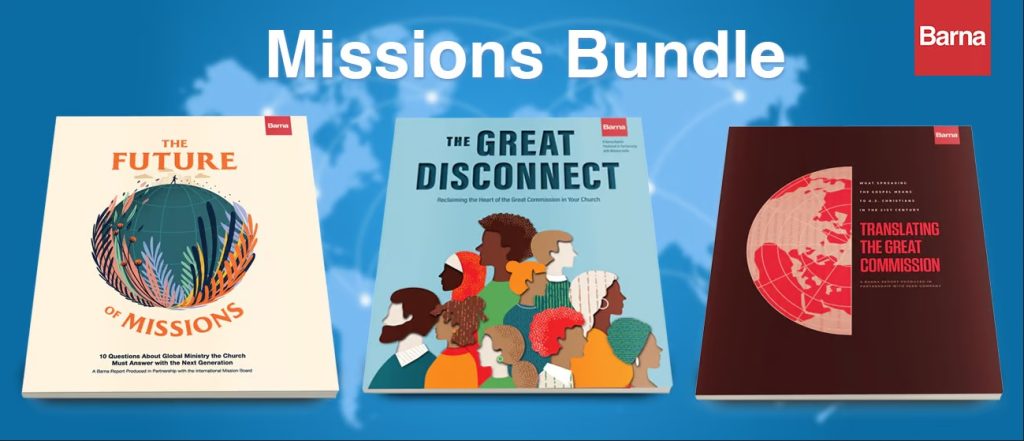By Amanda, Pioneers UK
Read or share the email edition of this article.
I’d always thought the excuse of a dog eating one’s homework was laughable (having been an overachieving child myself). Imagine, then, my slightly misplaced delight when I arrived at the office one day to find one of my colleagues—who had been due to fly to South America the day before—inexplicably sitting at his desk.
“But you’re meant to be in Brazil,” I stated quizzically. He said very little, just presented me with a plastic bag. The contents looked like shredded paper at first. That is, until I noticed the remnants of a photograph and the distinctive red of a British passport cover.
“The dog ate my passport,” he said. “I couldn’t go to Brazil because the dog ate my passport.”
I confess that I laughed long and heartily. It wasn’t particularly kind of me, but thankfully my colleague saw the humor in the situation too and we had a good laugh together.
We make small, insignificant decisions every day—decisions we would never imagine could make any difference to our lives. But sometimes they do. (For instance, leaving your passport on the dining table unattended could result in a missed week-long trip to the other side of the world.) In fact, our insignificant, everyday decisions often set the course of our lives more than the major, more dramatic decisions we make.
Howard Culbertson, former missionary and professor of missions at Southern Nazarene University in Oklahoma wrote a checklist for anyone hoping to avoid missionary service. Although it leaves out feeding your passport to your dog, it lists some of the other everyday choices and attitudes that could affect our willingness to say, “Here am I, send me.” The list applies primarily to Goers, but those of us who are Senders, Givers, and Pray-ers will certainly find that it applies to us too!
And now, without further ado, for a good giggle (with just a little sting), I present to you:
10 Ways to Avoid Becoming a Missionary
By Howard Culbertson
1. Ignore Jesus’s request in John 4:35 that we take a long hard look at the fields.
Seeing the needs of people can be depressing and very unsettling. It could lead to genuine missionary concern.
2. Focus your energies on socially legitimate targets.
Go after a bigger salary. Focus on getting a job promotion, a bigger home, a more luxurious car, or future financial security. Along the way, run up some big credit card debts.
3. Get married to somebody who thinks the “Great Commission” is what your employer gives you after you make a big sale.
After marriage, embrace the socially accepted norms of settling down, establishing a respectable career trajectory, and raising a picture-perfect family.
4. Stay away from missionaries.
Their testimonies can be disturbing. The situations they describe will distract you from embracing wholeheartedly the materialistic lifestyle of your home country.
5. If you happen to think about missions, restrict your attention to countries where it’s impossible to openly do missionary work.
Think only about North Korea, Saudi Arabia, China, and other closed countries. Forget the vast areas of our globe open to missionaries. Never, never listen to talk about creative access countries.
6. Think how bad a missionary you would be based on your own past failures.
It is unreasonable to expect you will ever be any better. Don’t even think about Moses, David, Jonah, Peter, or Mark, all of whom overcame failures.
7. Always imagine missionaries as talented, super-spiritual people who stand on lofty pedestals.
Maintaining this image of missionaries will heighten your own sense of inadequacy. Convincing yourself that God does not use ordinary people as missionaries will smother any guilt you may feel about refusing to even listen for a call from God.
8. Agree with the people who tell you that you are indispensable where you are.
Listen when they tell you that your local church or home country can’t do without you.
9. Worry incessantly about money.
10. If you still feel you must go, go out right away without any preparation or training.
You’ll soon be home again and no one can ever blame you for not trying!
And just for good measure, let’s add:
11. Leave your passport on the kitchen table.
Maybe the dog will eat it and then you’ll be off the hook.
Adapted from The Dog Ate My Passport (and Other Ways to Avoid Becoming a Missionary), from Pioneers UK, and How Not to Become a Missionary, by Howard Culbertson.
Dog photo by Matthew Henry on Unsplash.


